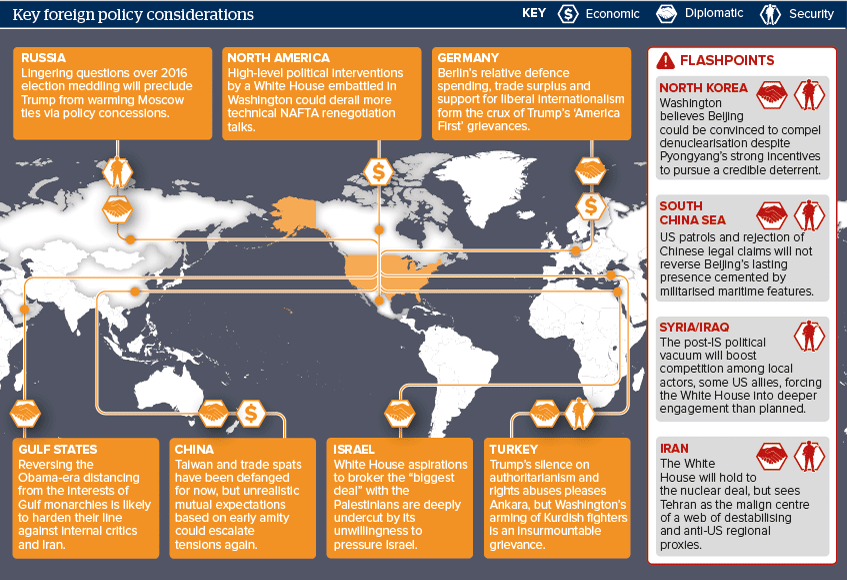Mixed messaging will undermine US foreign policy
US officials struggle to normalise Washington’s international agenda as the Trump administration looks inward
Source: Oxford Analytica
Outlook
President Donald Trump calling for an ‘America First’ foreign policy complicates US officials’ task of reassuring allies of Washington’s traditional willingness to underpin regional security architectures and champion liberal global governance.
Any president would have had to cope with China and Russia’s desire to leverage military and economic clout into a diminished role for Washington in their respective neighbourhoods and post-Iraq War scepticism of large-scale military intervention abroad.
However, the unpredictable pronouncements of a commander-in-chief disengaged from the substance of long-term policy considerations and the cut-and-thrust of senior officials’ contending agendas will see the United States struggle to signal its intentions clearly and keep allied doubts in check.
Impacts
- US sympathy for the Gulf Arab states’ hard-line anti-Iran stance will isolate Qatar and worry Kuwait and Oman.
- Politics-driven US cuts to peacekeeping and foreign aid could have a severe impact on an array of fragile countries.
- White House outsiders Secretary of State Rex Tillerson and UN Ambassador Nikki Haley will struggle to speak for Trump.
- Lack of progress on his domestic policy agenda could see Trump turn to international affairs to regain lost stature.
See also
- Egypt will overlook mixed messages from Washington - Aug 24, 2017
- Incoherent US trade plans may get nastier not clearer - Aug 1, 2017
- Prospects for emerging economies to end-2017 - Jun 27, 2017
- UN rights body exit would see selective US rhetoric - Jun 6, 2017
- Trump will undercut the US national security apparatus - Feb 22, 2017
- More graphic analysis
